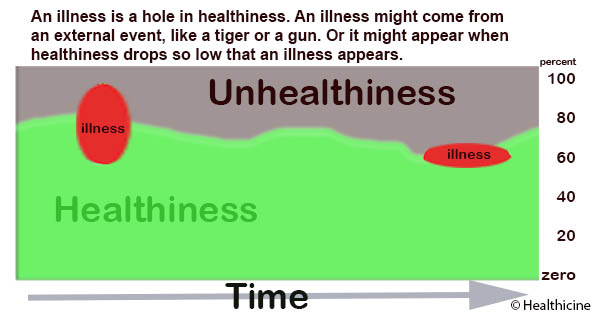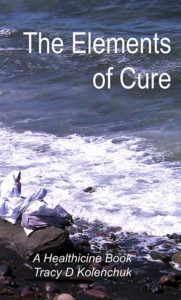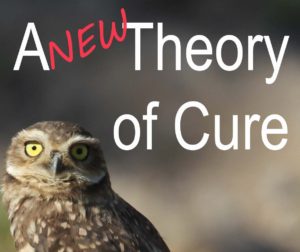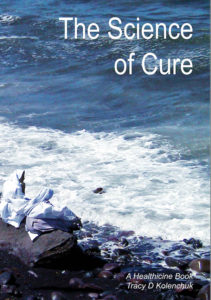We often struggle with question like: what’s the difference between health and illness. We all want to be healthy. No-one wants to be ill. But there’s a problem. We don’t understand the question. It’s an easy mistake to make. Luckily, it’s easy to fix.
Health vs Illness is a poorly formed Question
To study the differences between health and illness, we need to fix the question. Health is a general term. There is no such thing as “a health”. Each illness, however, is a specific case, or a specific disease. Once we fix the question, it becomes more logical.
What’s the difference between a healthiness and an illness?
But, we have a problem. What’s a healthiness? A healthiness is a specific instance of health. But…
Health is in the dictionary. Health appears 278 times in Webster’s New World Medical Dictionary. Illness is in the dictionary, appearing 163 times. But the word healthiness is not in that dictionary. Webster’s online dictionary, when we search for healthiness, gives healthy. The Oxford online dictionary has an entry for healthiness. Healthiness refers to the quality of… “skin … healthiness“, “healthiness of … bank balance“, “healthiness of mind“, “healthiness of the state’s economy.” A healthiness is a measurable quality.
We don’t study individual aspects of healthiness. We hardly have a word for individual aspects of healthiness: a healthiness.
Let’s look at a few healthinesses:
Vitamin C Healthiness – refers to a healthy consumption of Vitamin C in our diet. We need to consume a healthy amount of Vitamin C. We don’t need it every day. But over the period of a few weeks, a certain level of consumption of Vitamin C is essential to many life processes, most notably to healing even minor invisible injuries.
Vitamin C healthiness can be deficient, or excessive. According to medical authorities, we need to consume about 80 mg of Vitamin C a day, to maintain our Vitamin C healthiness.
Vitamin C Illness – if we don’t consume enough Vitamin C, we soon get an illness – Vitamin C deficiency, which over time can grow to the disease scurvy. If we consume too much Vitamin C (it’s difficult, but possible) we might get diarrhea.
Note: there is one Vitamin C healthiness and there are two causes of Vitamin C illness. Any healthiness can be deficient, possibly leading to illness. Any healthiness might also be excessive, leading to illness. In addition, a severe deficiency, scurvy, can lead to joint damage, loss of teeth, anemia, and eventually death. An excess or a deficiency of Vitamin C is an unhealthiness (also not in medical dictionaries) that can cause an illness and possibly one or more diseases.
We don’t get scurvy as soon as we miss a meal, or a day – even a few days, even a week, without any Vitamin C. We might not get diarrhea even if we consume 20 times the daily defined healthy level of Vitamin C. Illness comes with severe deficiencies or excesses.
Let’s look at some different examples.
Oxygen Healthiness – we need to breathe, pretty much all the time. We can breathe slowly or quickly, shallow or deeply. We can change our rate and depth of breathing easily and naturally. But we need to maintain oxygen healthiness as long as we are alive.
Oxygen Illnesses – if we don’t breathe sufficient oxygen we get a hypoxia illness, which can cause many other diseases, including brain damage, liver damage and damage to other organs and systems – even to death. An excessive exposure to oxygen leads to cataracts, lung disease, and more. As with Vitamin C, we can see many illnesses and diseases linked to this single healthiness.
Sleep Healthiness – we need healthy amounts of sleep for our bodies and minds to recover from daily stresses.
Sleep Illness – being unable to get enough sleep is the illness insomnia. We can go for a few days without sleep, but in less than 24 hours we see negative signs and symptoms. Illness quickly follows, and then signs and symptoms of disease – and death in extreme cases. When we don’t get enough sleep, we become tired, weaker, and healing slows. On the other extreme, if we get too much sleep, we’re barely alive, and we get diseases like bedsores, and muscle weakness. Many illnesses can be caused by excesses or deficiencies of sleep healthiness.
Notice that every healthiness is part of a process – and therefore, every illness is part of a process. Are there illnesses that are not part of a process? Yes.
Illness
An illness is a hole in health. Sometimes, it’s a hole in a healthiness. Sometimes, it’ s just a hole, like a bullet wound, or a cleft lip, or cataracts.
When does a hole in health exist? An illness is a judgement that a hole exists. We might compare the concept to a pothole in a road. A road has many holes, large and small. When does a pothole exist? When we judge a hole big enough that it causes problems. When we judge that it needs to be fixed. When we judge that it can be fixed.
An illness is a judgement that a hole exists in our healthiness. It is also, in the healthicine view, a hole that can be cured (fixed). If it cannot be cured, it’s a disability, not an illness. To be accepted, perhaps to be treated, but not cured. Every (curable) illness can be cured. This discussion is about curable illnesses.
Disease?
Where does disease fit into this picture? We often mix the concepts of illness and disease. There is an important distinction. In general, a disease is an illness severe enough to require medical attention.
A patient goes to the doctor with an illness, and goes home with a disease.
A disease is an illness defined by the medical profession. It technically does not exist until there is a diagnosis (which can be retro-active). Diseases are seldom linked to a specific cause. Of course, we cannot link many illnesses, like most diseases, to a cause. Most diseases start with minor illnesses. Most minor illnesses are easily cured by natural healthy actions – “take two aspirin and call me in the morning“.
Many diseases are actually disabilities, considered incurable. Sometimes I think Western medicine believes every disease is incurable – because there are so few attempts to cure. It’s a myth that medicines cure. Most medicines, and most medical treatments, make no attempt to cure.
We can link any healthiness to illnesses of deficiency and of excesses. These illnesses can often be linked to diseases that follow.
How many Healthinesses Exist?
A healthiness is a changeable aspect of health. It’s something within our control. A missing arm or leg is not an unhealthiness, because can’t change it. There are as many healthinesses as there are actions to improve our health. There are many healthinesses of body, most of which are included in the general concepts of consumption and excretion (yes, pooping is a healthiness), and exercise and rest. We need to consume many different things, from simple chemicals of water and oxygen to complex foods like meat, vegetables, and spices. We excrete waste products and toxins through our urinary system, our digestive system, our cleansing systems, our lungs, and our skin. We can also undertake many healthy actions to improve these aspects of physical healthiness. Drink lots of water, it encourages healthy growth, and also healthy excretion. We can exercise our bodies, our minds, our spirits, our independence and our community involvement. Each might be healthy, or unhealthy. Each activity has a healthy range. Each might be deficient or excessive.
Healthinesses can don’t just exist in our body. We have healthinesses of mind. We can decide to be optimistic. A healthy decision in many situations. We might decide to be pessimistic. A healthy choice in other situations. One individual’s spirits might be generally optimistic, another generally pessimistic. In a community or society, it’s useful to have both types of people – differences creates healthier communities.
We might take healthy actions to be independent, or healthy actions to support or be supported by our communities. We might also become too independent for our own good, or so involved in our communities that our individual self suffers.
The Opposite of Healthiness: Unhealthiness
It’s easy to think of illness as the opposite of healthiness. An easy mistake to make. The opposite of healthiness is unhealthiness. Our unhealthinesses are potentials for improvement in healthiness. Unhealthiness is “that which, when changed, results in an improvement in healthiness.”
Health is whole. As in this diagram, healthiness and unhealthiness add up to 100 percent for each aspect of healthiness.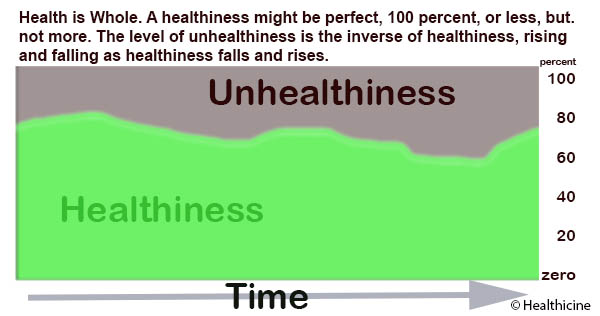
What then, is an illness? An illness is a hole in healthiness, as illustrated in this diagram.
Healthiness is always present, rising and falling as long as we are alive. We each suffer many illnesses, but most of the time, we are not ill. Most illnesses come and go. Whether we are suffering from an illness, or not, healthiness is always present.
Health is Wide and Deep
Not every unhealthiness leads to illness. Unhealthiness defines healthy boundaries of life, but these are seldom absolute boundaries. It’s unhealthy to go outside at -40. But, humans who wish to travel to the South Pole need to handle more severe temperatures without illness. As a species, we often achieve more successes by tackling our boundaries instead of avoiding them. But of course, there is always risk of illness.
We need to respect the boundaries of healthiness, but not to be slaves to them.
Health is Honest and True
Whenever we challenge a healthy boundary, we might get sick. Some illnesses might be due to random coincidences – being shot by a random bullet. Many cases of illness are a sign that we have exceeded our personal boundaries of healthiness – of deficiency or excess. We can work to extend our boundaries – but sometimes this action also leads to illness.
What’s the difference between a healthiness and an illness?
Healthiness is always present. The measure of a healthiness is a measure of a current life process. We can choose healthy actions. We can decide to challenge our healthy boundaries. Often, we can extend them, expanding our abilities and opportunities.
An illness is a consequence. An illness is a hole in healthiness. When we exceed a healthy boundary, even without conscious awareness, we might get sick, we might acquire an illness. We might acquire a disability – an incurable illness. Is an illness curable or incurable? We can prove curable – by curing. We never prove incurable. Incurable is a decision to give up trying to cure. Fight!
to your health, tracy
Founder: Healthicine
This material is based on the concepts of health, illness, disease and cure published in the book
The Elements of Cure, which is available in Kindle and print format at Amazon. The Elements of Cure was published just over a year ago and has been recently updated to account for new concepts encountered in studies of COVID-19, while preparing the book COVID-19, from Causes to Cures – which has currently been blocked by Amazon.
Note: This post is a re-write of an earlier post about health and illness, which, if you are interested in the history, you can view here.

